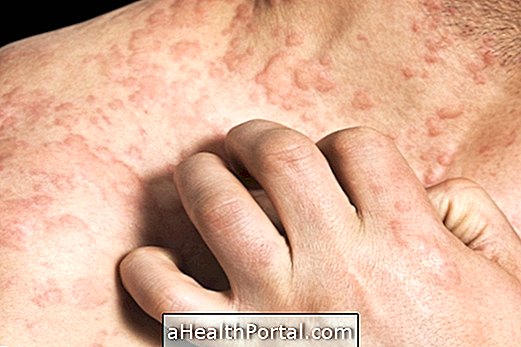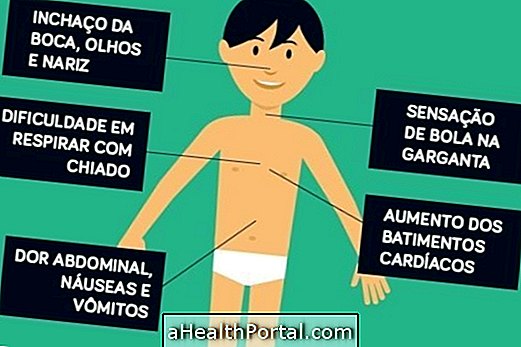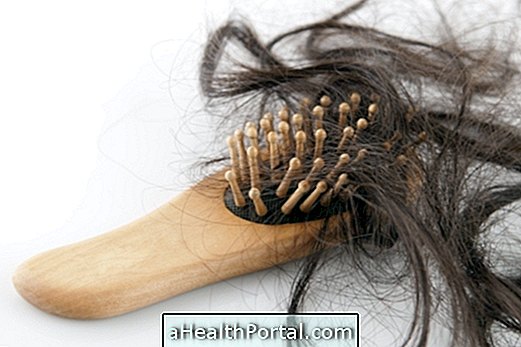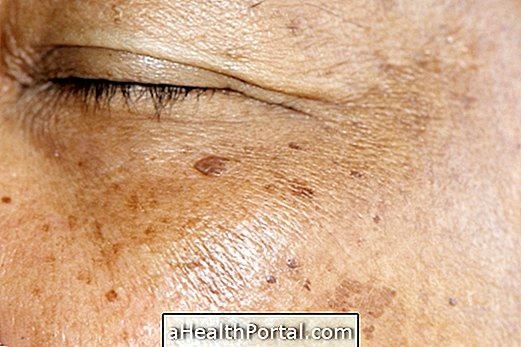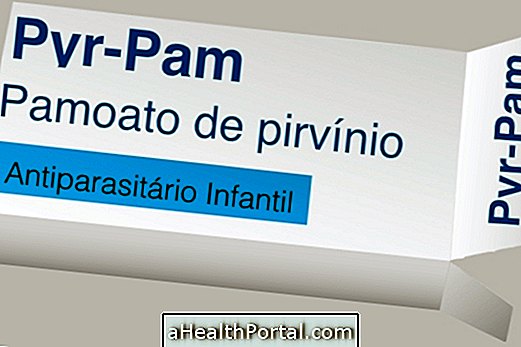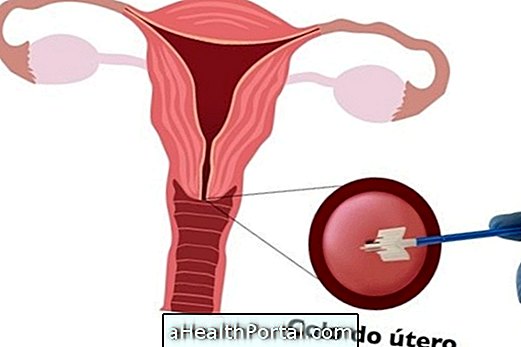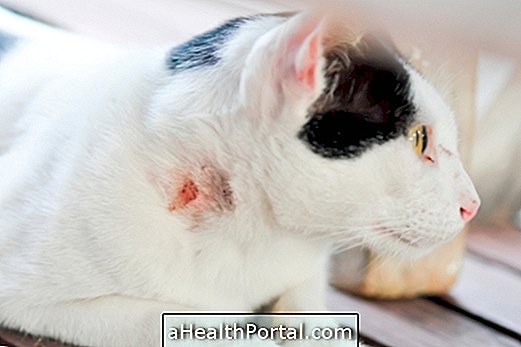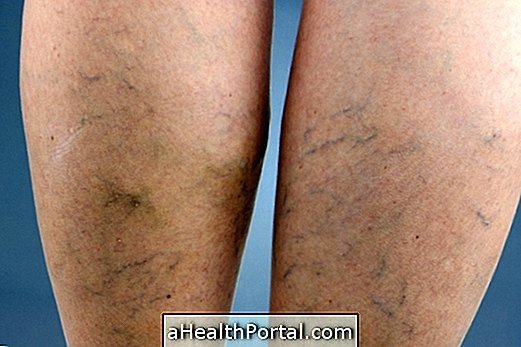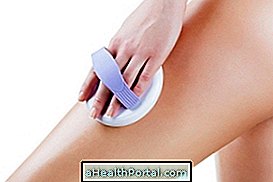Urticaria, which corresponds to an allergic reaction in the skin, is cured when the cause is identified and treated quickly. Usually the symptoms of urticaria disappear over time, and no treatment is necessary, but since it can be very uncomfortable, it is important to see a doctor. When symptoms of urticaria last longer than 6 weeks, it is considered to be chronic and, therefore, cure is more difficult to achieve, and symptom control is usually performed according to medical guidance. Learn how to identify hives.
The best way to treat hives is to try to identify if there is a cause that is causing the symptoms and avoid it as much as possible so that the urticaria does not recur. However these causes can be very varied, from food, to the use of medicines and some objects. In this way, identifying the cause of the problem can be a rather difficult task.
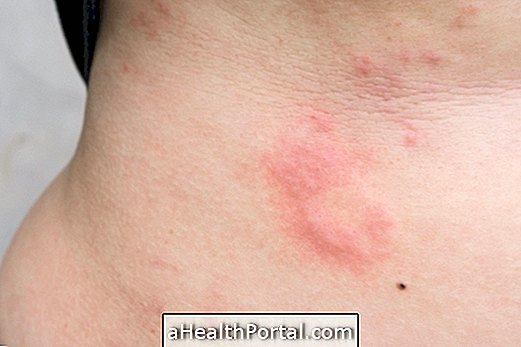
The main forms of treatment for urticaria are:
1. Avoid the causes
The simplest and most effective way to treat urticaria is to identify the causative agent of the symptoms and thus avoid contact. The most common causes of triggering allergic skin reaction are:
- Consumption of some types of food, especially eggs, peanuts, shellfish or nuts;
- Frequent use of medications, such as antibiotics, aspirin or ibuprofen;
- Contact with some everyday objects, mainly made with latex or nickel;
- Mites or contact with animal hair ;
- Insect bites ;
- Physical stimuli, such as pressure on the skin, cold, heat, excessive exercise or sun exposure;
- Frequent infections such as colds, flu, or urinary tract infections;
- Exposure to some plants or pollen.
To help identify what may be causing hives, the allergist may request an allergy test to identify specific causes, such as sensitivity to mites or pet hair, for example. Understand how these types of tests work.
However, when it is not possible to find the cause through the various tests of allergies available, it is recommended to remove food, medication or objects from everyday allergens, trying to identify if at any time the symptoms of urticaria decrease.
2. Use of antihistamines
The use of antihistaminic drugs, popularly known as anti-allergy, is recommended when it is not possible to identify the cause, it is difficult to avoid contact with the trigger agent of urticaria or when the symptoms are very uncomfortable and can disrupt the activities of the day -a-day. Thus, it is recommended to consult the general practitioner or allergist for the best antihistamine for each case, with the most common being Cetirizine and Hydroxizine, which help relieve symptoms and decrease the amount of histamine in the body.
Generally, these types of medications can be used over a long period of time, as they do not have many side effects and can be taken daily to reduce symptoms such as itching and redness on the skin.
In addition, some home-made techniques, such as applying cold compresses to the skin or passing anti-inflammatory cataplasms to the affected areas, help to decrease the development of symptoms, and also reduce the required dose of antihistamine. See a recipe for a great home remedy to relieve hives.
3. Use of corticoids
When there are episodes of very intense symptoms that do not improve with the use of antihistamines, the doctor may increase the dose or recommend the use of corticosteroids, such as Prednisone, which has a more potent effect but also has many effects such as weight gain, high blood pressure, diabetes or bone thinning, and should therefore be used for a short time.
4. Association of antihistamines and corticosteroids
Joint use of antihistamine and corticosteroid medications is indicated by the physician in the case of chronic urticaria, which is when the symptoms last longer than 6 weeks, are intense, appear frequently or never disappear. Thus, treatment for this type of urticaria is done with antihistamines, which can be completed with the use of corticosteroids, such as Hydrocortisone or Betamethasone, which greatly alleviate symptoms, even when the cause of urticaria is not avoided.
However, since corticosteroids also have many side effects, ANVISA approved a new medication, known as Omalizumab, which is able to reduce the symptoms of chronic urticaria without a specific cause, avoiding the appearance of so many side effects. Learn more about this new medication.
In cases where urticaria is accompanied by severe symptoms such as swelling of the tongue or lips or difficulty breathing, for example, the doctor may recommend the use of an epinephrine pen to be injected immediately into the person as soon as these symptoms appear . See when to use the epinephrine pen.

